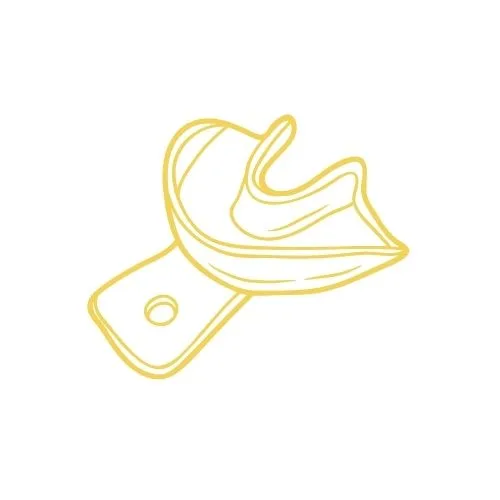What is a Splint / Grinding Guard?
These are custom made appliances specifically designed to fit over your upper or lower teeth to protect from grinding (bruxism0 and jaw joint disorders. They also reduce the frequency and severity of related symptoms such as tension headaches and neck pain, and protect your teeth from wear and hairline cracks.
Splints (or night guards) are a necessity if you’re grinding or clenching your teeth during sleep. as grinding and clenching leads to accelerated tooth wear, tension headaches and damage to the jaw joint.
Steps to get your Splint/Mouth Guard made:

Step 1
Your dentist takes an impression of your teeth.

Step 2
The Impression is sent to a special lab to make a type of splint that best meets your needs, as per our instructions. This splint will intimately fit around your teeth.

Step 3
You come back for a final fitting and aftercare instructions and then take your splint home.
What factors contribute to Grinding?
A combination of physical and psychological factors contribute to grinding, the most common being stress. Even if you only grind your teeth occasionally, several times a year, the years add up.
Excessive clenching or grinding can occur during sleep. If you suspect you may be clenching or grinding your teeth, book an appointment for us to assess the need to have a splint made for you.
What happens if I don't wear a Splint?
If teeth aren’t protected while grinding or clenching occurs, teeth break and require more fillings as well as treatment for the development of hairline cracks with crowns, root canals or extractions. Furthermore, grinding leads to the shortening of your tooth height due to tooth wear, resulting in an older looking smile.
Grinding your teeth is also a risk factor for gum disease.
